Lean ♪ Lean ♪ ♪ Lean ♪

(SARUDONO)
Somewhere I hear a good tone coming from ♪
The sound of wind chimes ♪

(SARUDONO)
It’s beautiful~ ♪
Were there wind chimes in the Edo period when Sarudono was here?

(SARUDONO)
Of course!
It was a bit of a boom.
Wind-chime Soba”, selling Soba noodles with wind-chimes hanging from food stalls, became popular and then the sind chimes were depicted in Ukiyoe paintings….
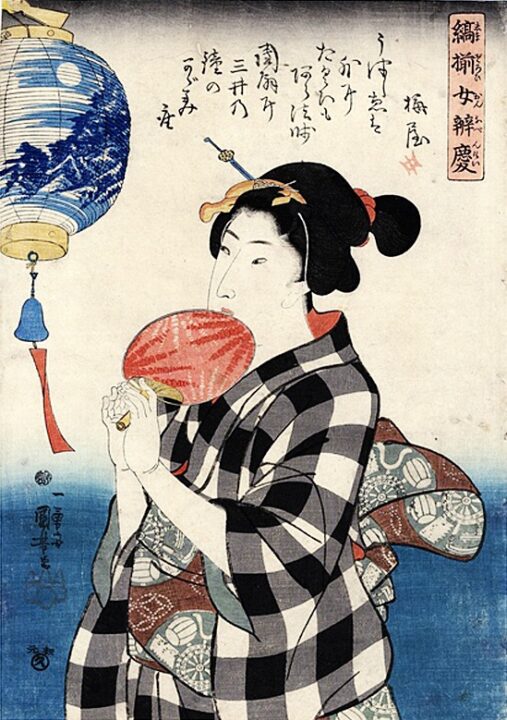
The Bell of Mitsui Temple, one of the ten Utagawa Kuniyoshi paintings in the series “Striped Beauties, Onna Benkei
That’s right!
I feel comfortable when I hear the sound of wind chimes,
This has been scientifically verified!

(SARUDONO)
Is it true !?
Yes, I heard that the sound of wind chimes is a harmony of regular and irregular sounds.
The sound of wind chimes is called “1/f fluctuation,” which is a harmony of regular and irregular sounds.
When you listen to this “1/f fluctuation,” alpha waves are induced in your brain, which relaxes you.
The murmuring of a river or the chirping of birds also have the same effect.
It has also been proven that listening to the sound of wind chimes lowers the surface temperature of the body by 2 to 3 degrees Celsius.
This is because the brain is under the illusion that “wind chimes ring → wind is blowing → it is cooler,” and the peripheral nerves are told that the body temperature is about to drop!

(SARUDONO)
How interesting!
However, this phenomenon seems to be limited to Japanese people.
This phenomenon does not seem to occur for foreign people who do not associate the sound of wind chimes with coolness.
However, if more foreigners become familiar with wind chime and the wind chime culture spreads to other countries, the situation may change!
After all, the number of foreign tourists to Japan is at an all-time high.
Spread the word! wind chime!
(It is not that I am a promoter from the wind chime industry! Please understand…)

(SARUDONO)
・・・ 。
Well・・・
Let us introduce you to a temple where many such wind chimes are displayed every summer!
Shojuin Temple is located in Ujitawara, Kyoto.
It is also called wind chime-temple.
Shoju-in Temple holds a wind-bell festival from June 1 to September 18 every year,
during which approximately 2,000 wind-bells are displayed in the temple grounds.

(SARUDONO)
Two thousand?
That’s a great number!
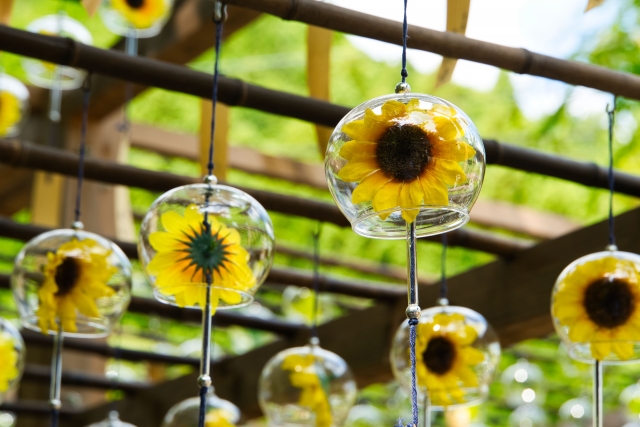
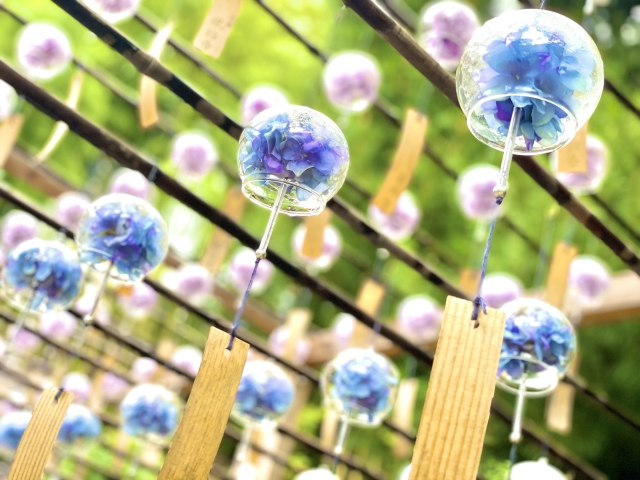
June 1 – early July: Hydrangea wind chimes
Early July – September 12: Sunflower wind chimes
September 13 to September 18: Kosmosu wind chimes
The wind chimes on display change with the seasons.
During the Fu-ring Festival, local Fu-rings from all 47 prefectures of Japan will also be on display.
It is quite interesting to see the different characteristics of each area.
Also, the heart-shaped windows called “Inome-mado” are very famous.
The colors of the outside seen through the windows change with the seasons.
Spring → pink of cherry blossoms
Summer → green of fresh green
Autumn → red of autumn leaves
Winter → white of snow
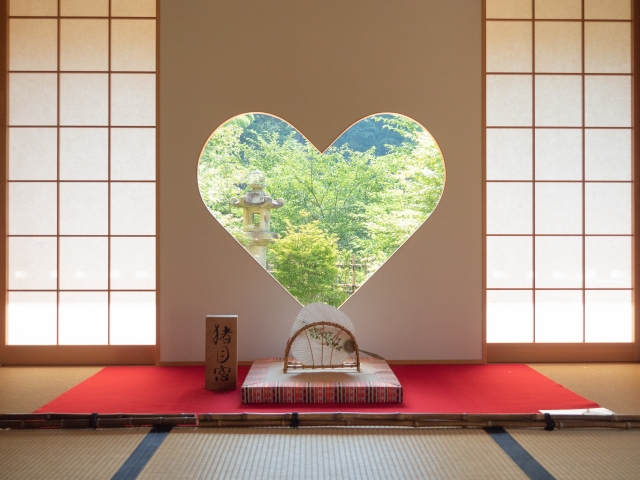
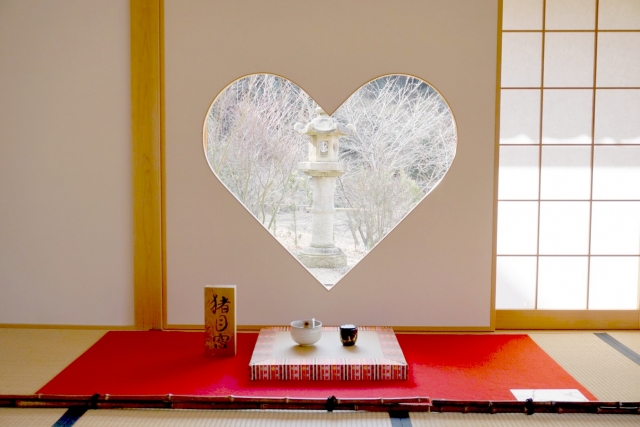

(SARUDONO)
Very interesting!
There is more to Shojuin than wind chimes and heart-shaped windows,
The ceiling of the main hall is decorated with 160 paintings of flowers and Japanese landscapes.
Among them, there are only 4 paintings of maiko (apprentice geisha) in spring, summer, fall, and winter!
You might get carried away looking for MAIKOs!

There are other activities.
Painting wind chimes, copying sutras, copying Buddhist sutras, making original prayer beads, yoga at the temple with a view of the garden, and making incense with tea.

(SARUDONO)
Oh, I want to try them all!
I’ll leave the reservations to you!
Ha! As you wish!
Shoju-in Temple
Address: 149 Kawakami, Okuyamada, Ujitawara-cho, Tsuduki-gun, Kyoto
Tel: 0774-88-3601
Hours: 9:00 – 16:30 (until 16:00 from November to March)
Admission: 600 yen (with tea and sweets) during regular hours, 800 yen (with tea and sweets) during the Wind Bell Festival
Parking: 60 cars, free of charge
Access
Take a 30-minute bus ride from JR Uji Station, Keihan Uji Station, or Kintetsu Shintanabe Station.
Transfer to the community bus at the Ishinchu-mae bus stop.
Take a 15-minute bus ride to “Okuyamada” bus stop. After getting off the bus, walk about 10 minutes.
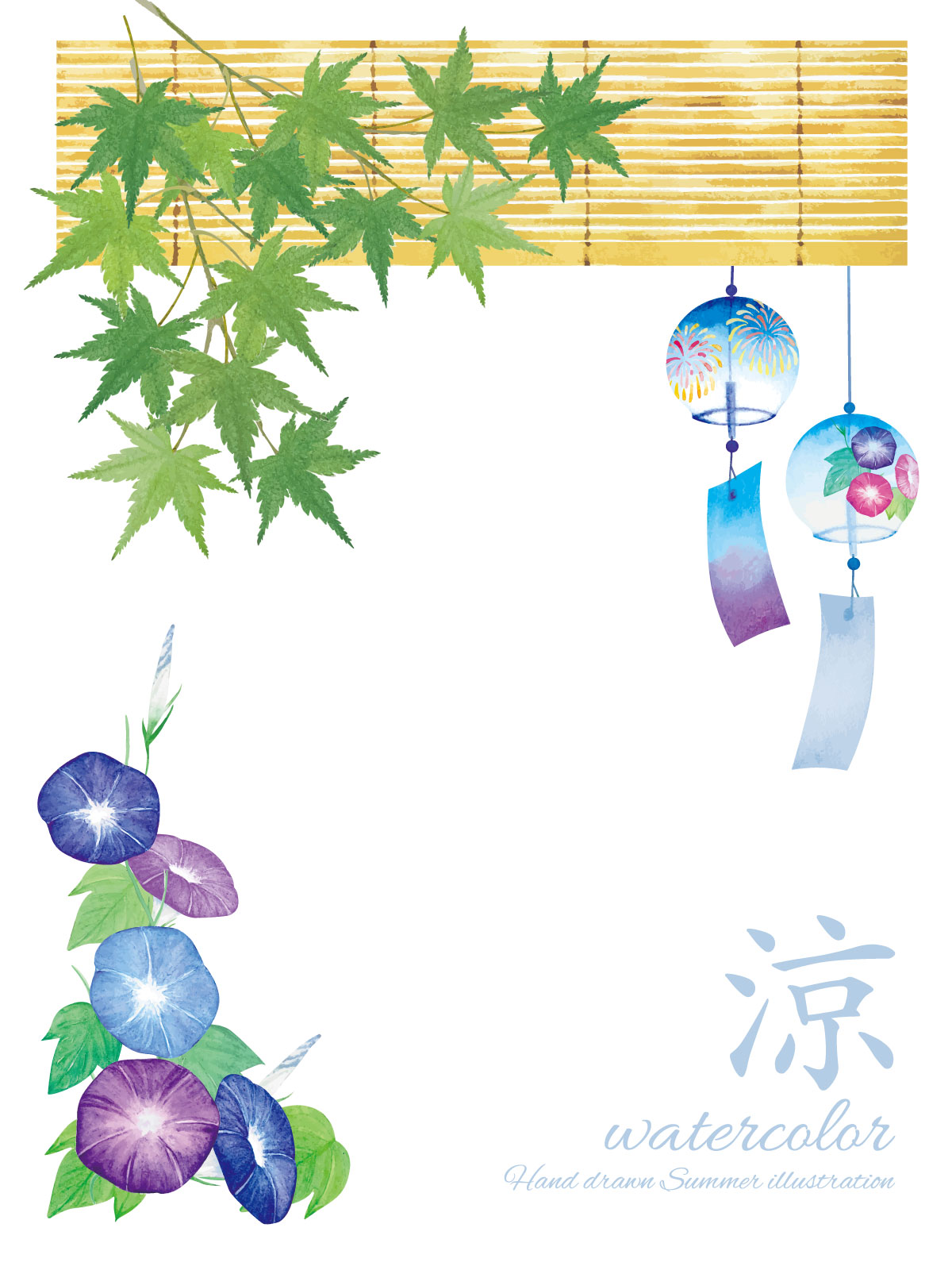


コメント